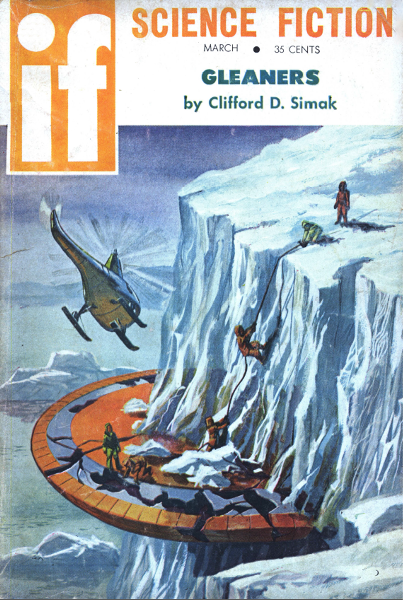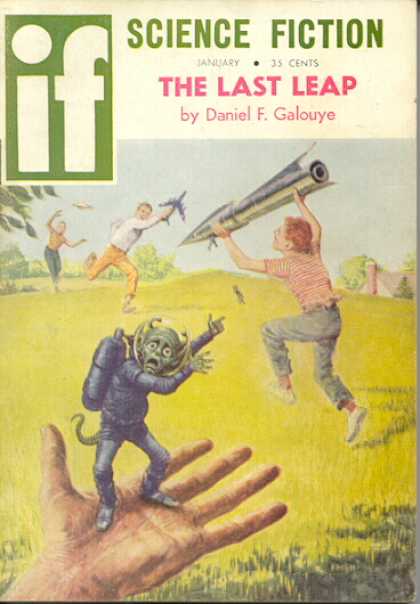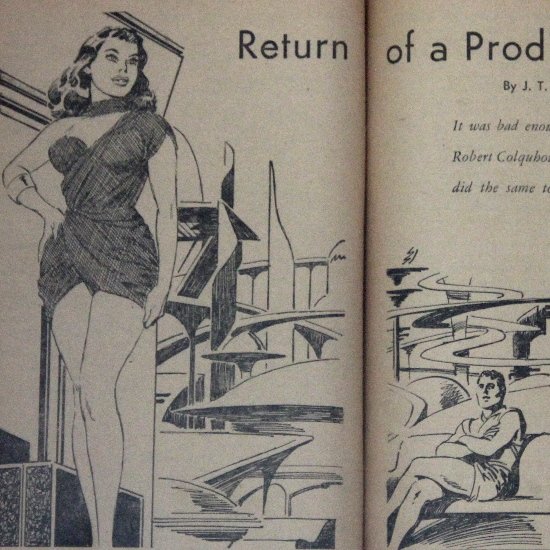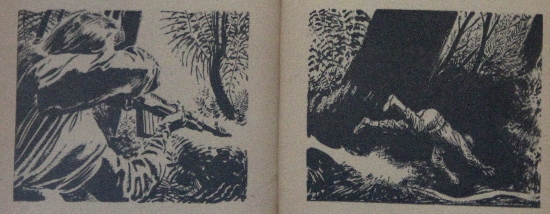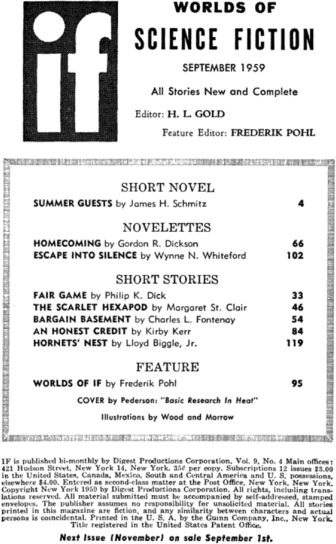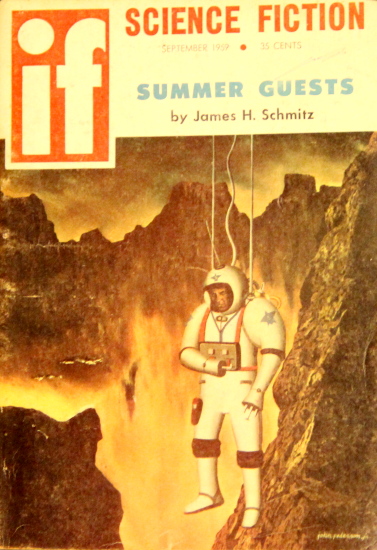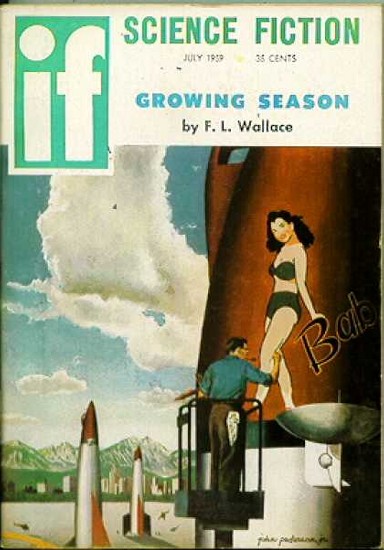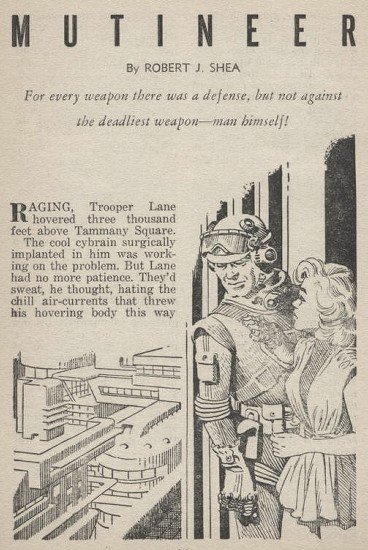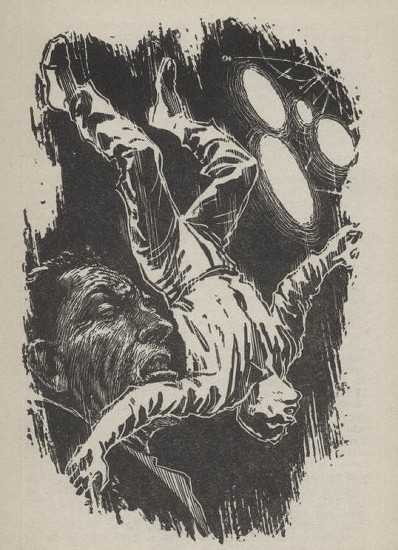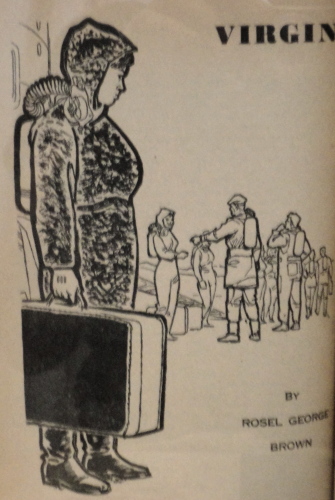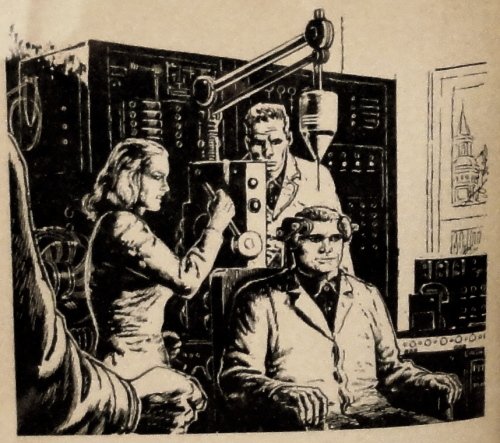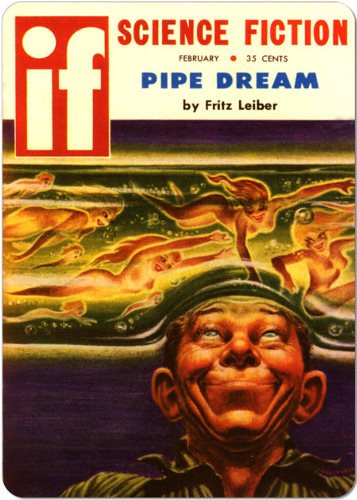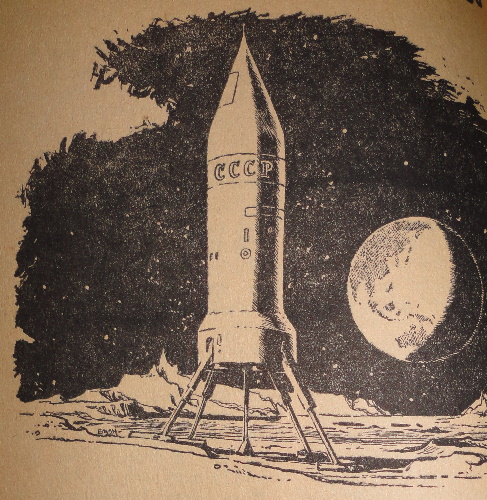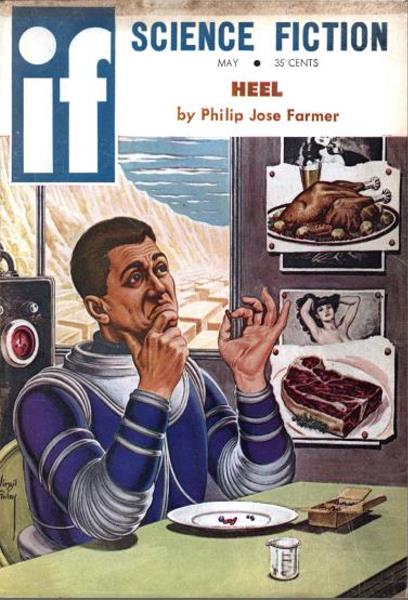
If there's anything this month's IF, Science Fiction proves, it's that you get what you pay for.
Last year, Galaxy editor, H. L. Gold, cut story rates in half to 2 cents a word. Shortly thereafter, he took over the helm of the promising but unsuccessful digest, IF. Its quality has been in steady decline ever since, and I can only imagine that he pays IF writers even less.
IF's name is ironic. Under the stewardship of Damon Knight, it had a short-lived renaissance culminating in the February 1959 issue. Had this continued, IF might be the leader of the current, heavily winnowed, crop of science fiction digests. Alas, such a history can only be contemplated, never directly perceived.
Why all the doom and gloom? The May 1960 IF is definitely the worst issue I've read to date. While not unmitigatedly bad, it never rises above the passable. In detail:
Chris Anvil's lead novella, The Tourist Named Death is a bland and amateurishly written interplanetary spy romp with lots of action but little depth. It is written in a style I like to call sequential: "Bob did this. Then he did that. He saw this and reacted like this. Then he did that." I'd think that, by now, Mr. Anvil would have matured past this level of ability. But, perhaps for a penny a word, he doesn't much care to apply himself.
James Bell is a brand-new author whose Freshman effort, Thirty Degrees Cattywonkus, is barely passable. A fellow, upon exploring his new house,discovers that a parallel dimension is impinging on his, but not quite orthogonally. The promising premise degenerates quickly. Maybe next time.
Then you've got When Day is Done by part-time minor-leaguer, Arnold Castle. The story, about businessmen who engage in simulated big-game hunting after work, would be an interesting first chapter to a longer tale, but as a stand-alone, there just isn't enough there.
C.C. MacApp is another greenhorn whose first-ever story is A Pride of Islands. I had trouble following this story, perhaps because it failed to ever engage me, but I believe it is about the descendants of a wrecked spaceship crew who have reverted to savagery.
Now, to leaven my harshness, I will say that it's great that Gold (and his executive officer for IF, Fred Pohl) are giving new authors a chance. With the folding of so many science fiction digests in the last decade, the authors of tomorrow have had precious few venues in which to hone their craft.
I just wish they'd hurry up and get better…
The first solid story of the issue comes from the reasonably consistent Philip Jose Farmer. HEEL is basically Homer's Illiad with a science fiction twist: the Gods are really interstellar television producers filming a decade-long epic. The Greeks and Trojans are just hapless pawns dancing to the tune of a Director they know only as Zeus.
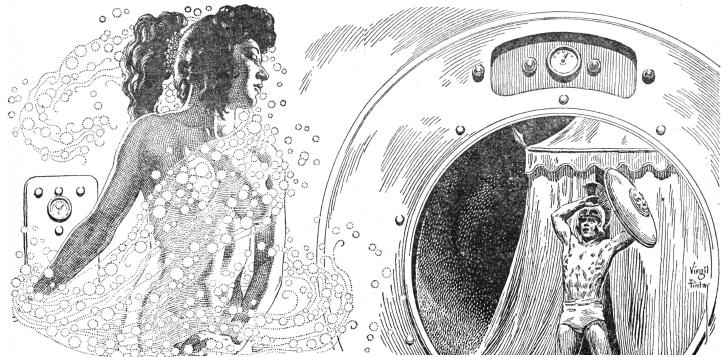
by Virgil Finlay
It's a cute concept, and as I'm currently rereading the plays of Aeschylus, I'm particularly receptive to classically themed works. On the other hand, there is a dashed-off feeling to the story. I don't think Farmer strained himself putting this one together.
Back to the crop of new authors, A.M.Lightner's (Alice Martha) first story (I believe) is A Good Day for the Irish. A Terran entomologist (refreshingly, a female protagonist) emigrates to a paradisical colony only to find it in the midst of a terrible blight. Could the cure be the very infestations she had been enlisted to prevent? This is another story that might have benefited from greater length.
Finally, we have Charles Fontenay's novelette, Matchmaker. It is an engaging, if unremarkable, piece about the extreme measures to which a government will resort to ensure the computer-ordered union of two otherwise unfated individuals. On a side note, I liked the vacuum-powered letter delivery systems. I can imagine such systems being commonplace in the near future.
Thus, the May 1960 IF ends on a stronger note than it began, but all told, it's a pretty unimpressive magazine. I'll keep my subscription, of course. There is precious little out there right now, and perhaps things will get better. Hope springs eternal.
See you soon, and if you have any opinions on these pieces, whether or not they are in line with mine, please drop me a line. I welcome all comments.

